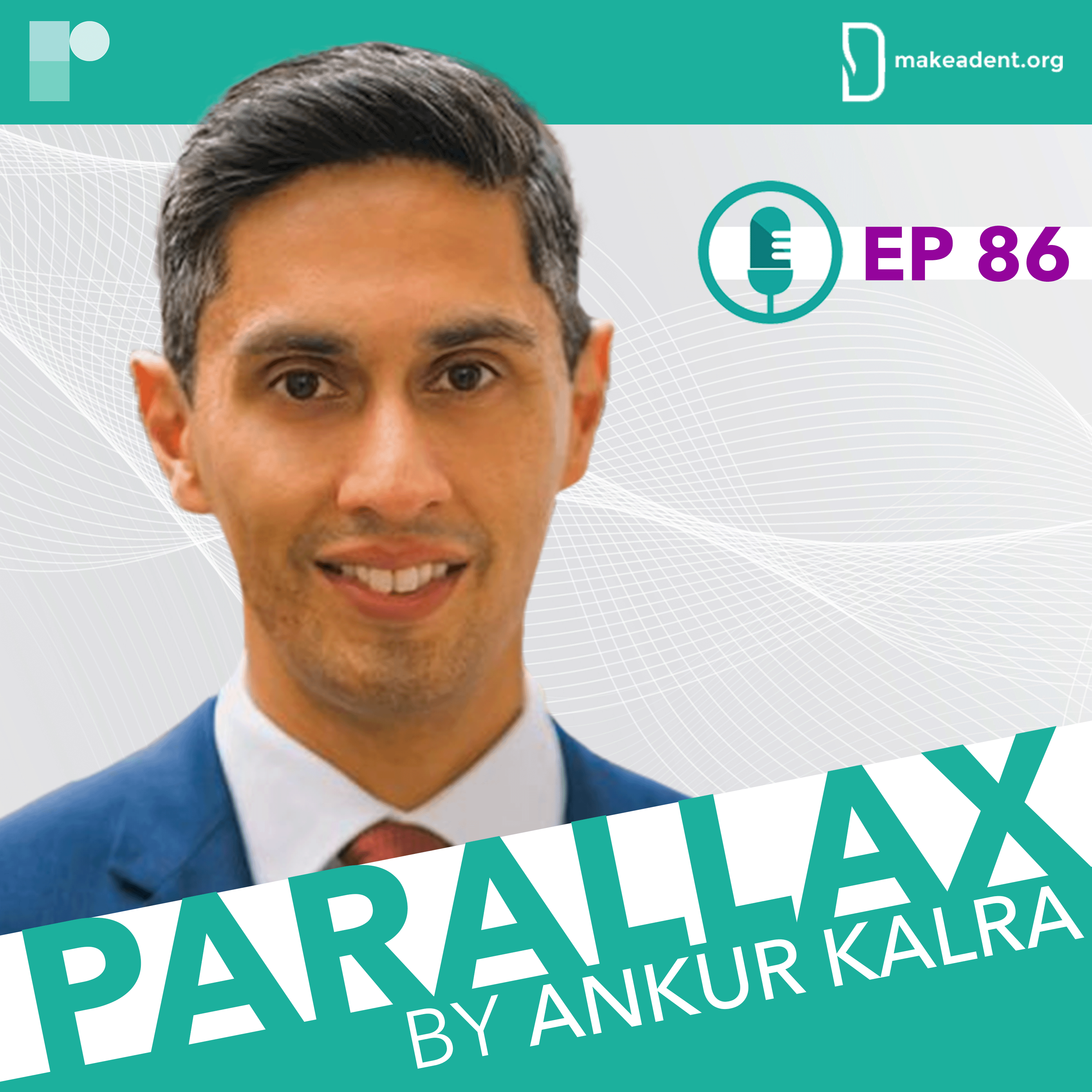
In this week’s Parallax Dr Kalra welcomes back Dr Nijjer for their annual review of the most impactful and controversial cardiovascular trials of 2022.
Dr Sukh Nijjer is a Consultant Cardiologist in the UK, he is President of the Royal Society of Medicine and Honorary Senior Clinical Lecturer at Imperial College of London.
The coronary physiology trial FLAVOUR was presented at ACC.22 by Dr Bon Kwon Koo. This South-Korean study compared the safety and efficacy of FFR and IVUS-guided stenting. Dr Nijjer interprets the findings and outlines the take-home messages by describing his practice.
Following this, Dr Kalra and Dr Nijjer look at REVIVED-BCIS2 presented at ESC 2022 by Dr Divaka Perera. Dr Nijjer talks about the complexity of running this study that evaluated whether revascularization by PCI can improve outcomes in patients with ischemic left ventricular systolic dysfunction compared with optimal medical therapy. They distill some of the nuances for practice.
Dr Nijjer summarises the all-comers PROTECTED TAVR trial that assessed the use of Sentinel® Cerebral Protection System in patients undergoing TAVR. We learn more about the secondary outcomes and the reception of the results. Dr Kalra shares how the new data impacted his approach.
Last, they discuss the implications of Chinese CTS-AMI trial presented at AHA 22 by Dr Yuejin Yang. The trial showed that a traditional remedy, Tongxinluo improved the clinical outcomes of patients with STEMI. Dr Nijjer and Dr Kalra consider the meaning and impact of these trials such as CTS-AMI on Western medicine.
How can we interpret some of the controversies from REVIVED? What can we learn from traditional medicinal remedies? What are the key takeaways for clinical practice from the reviewed trials?
Questions and comments can be sent to “podcast@radcliffe-group.com” and may be answered by Ankur in the next episode.
Guest: @SukhNijjer, host: @AnkurKalraMD and produced by: @RadcliffeCARDIO.

He explains how the complexity of nutrition and the compounds generated by the gut microbiome can impact our health. We learn more about three compounds produced by our gut microbiome that have a strong connection with heart disease.
Through this conversation, Dr Vuyisich invites us to reframe our approach to nutrition and prevention as a question of food education and data-driven science.

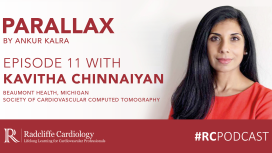
In the final episode of our burnout and resilience series, Kavitha and Ankur give you some practical tools of self-care to help you avoid burnout. Kavitah Chinnaiyan, MD, is an award-winning author and, Cardiologist and Director of Cardiac CT Research at Beaumont Health, MI. Send us your thoughts to this episode for Ankur to share in future episodes: podcast@radciffe-group.com. Guest @ChinnaiyanMD.
Hosted by @AnkurKalraMD. Produced by @RadcliffeCARDIO.
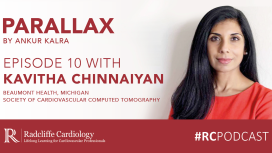
In our second episode on burnout and resilience, Kavitah Chinnaiyan, MD, and Ankur take a deeper dive into mindfulness and training the brain to move from Default-Mode to Task-Positive Networks. Kavitah is an award-winning author and, Cardiologist and Director of Cardiac CT Research at Beaumont Health, MI. Send us your thoughts to this episode for Ankur to share in future episodes: podcast@radciffe-group.com. Guest @ChinnaiyanMD.
Hosted by @AnkurKalraMD. Produced by @RadcliffeCARDIO.
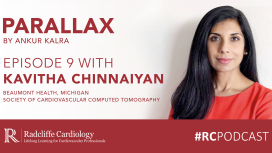
Hosted by @AnkurKalraMD. Produced by @RadcliffeCARDIO.
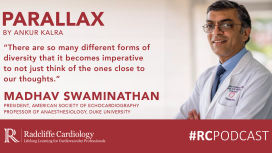
Ankur and Madhav also discuss positive traits of leadership, why we should embrace failure and the importance of mentorship throughout all stages of one’s medical career. Send us your comments to this episode for Ankur to share in future episodes: pocast@radciffe-group.com. Guest @mswami001.
Hosted by @AnkurKalraMD. Produced by @RadcliffeCARDIO.
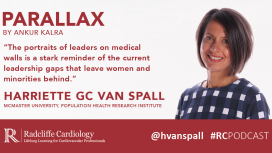
Harriette is an Associate Professor of Medicine at the Department of Medicine, Cardiology and the Department of Health Research Methods, Evidence and Impact at McMaster University and the Population Health Research Institute in Hamilton, ON, Canada. In this episode, Ankur and Harriette discuss why this issue is so contentious, what the current state of medical walls represents, why this may be an issue and what alternative medical walls could look like. Harriette also shares her thoughts on how this topic relates to the maintenance of hierarchical power structures in academic institutions, calling for more collaborative leadership and management styles. Guest @hvanspall.
Hosted by @AnkurKalraMD. Produced by @RadcliffeCARDIO.





